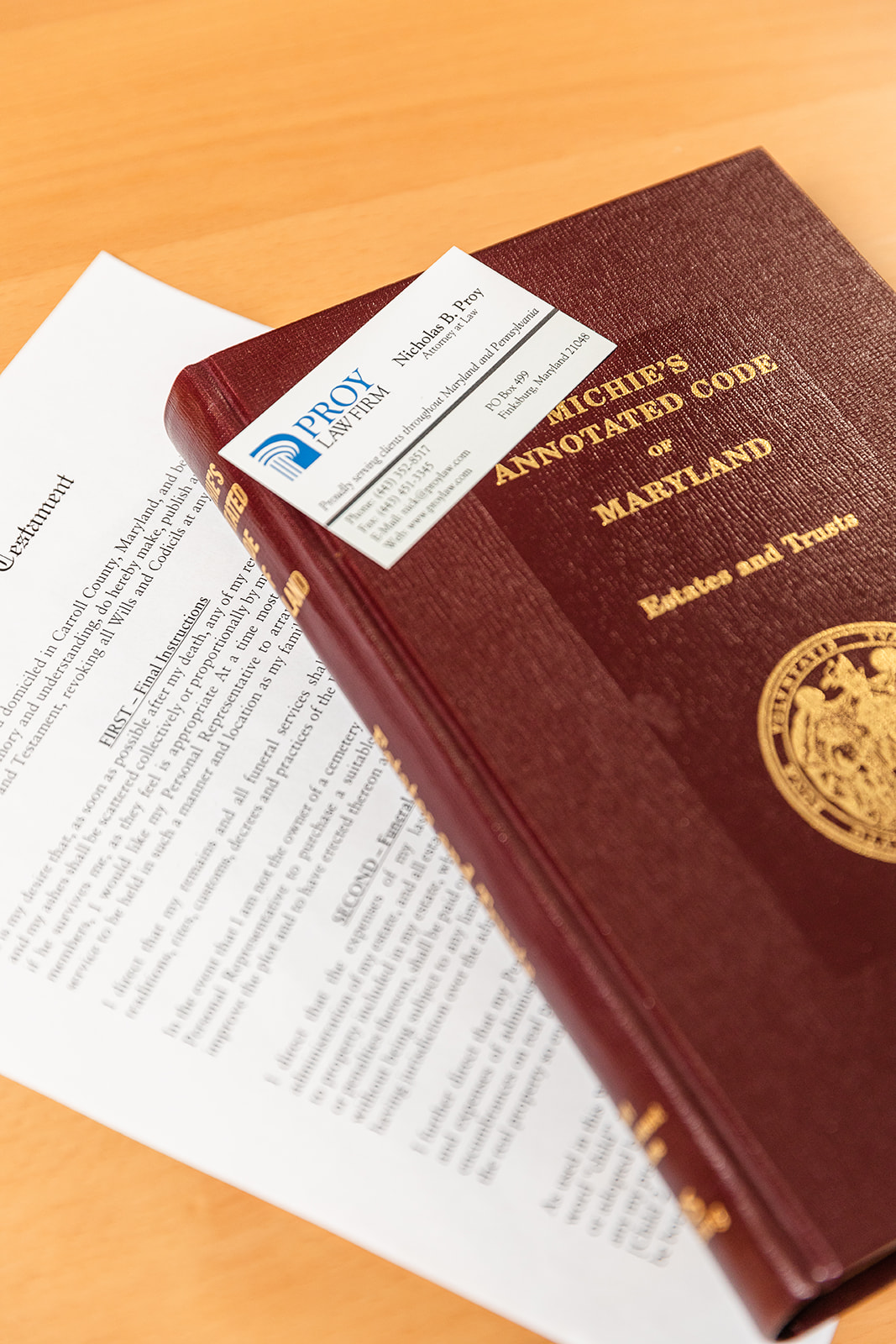Last Will and Testaments and Codicils
A "Last Will and Testament" is often simply referred to as a "will". A "codicil" is an amendment to a will.

A will is the centerpiece of every estate plan, even if trusts are being used. A will dictates how all of your assets will be disbursed and, if you have minor children, who should be the guardian of your children.
Codicils are not often used, as it is many times easier to create a new will to avoid any confusion surrounding the individual's intentions. However, some circumstances, such as a complex estate plan utilizing trusts, may warrant the use of a codicil to avoid any unintended undoing of a previous estate plan.
Common Mistakes with Last Will and Testaments and Codicils:
(1) The number one mistake with wills and codicils is failing to have a will (this is known as "intestacy" and commonly known as passing away without a will). Without a valid will in place at the time of death, the State decides where your assets will go and who will be the guardian of your children. I offer emergency and urgent estate planning services if necessary.
(2) The second most common mistake is using a do-it-yourself approach to creating and amending of the documents. Often times form books and website-created forms will leave an individual under the impression that their document is legally sufficient when in fact it is lacking something important. For example, Maryland has different signature requirements for both wills and codicils than Pennsylvania. Do you expect a non-state-specific form to keep up with these nuances?
(3) A codicil is the proper way to amend a will if you do not want to create a new will. Merely crossing out provisions and handwriting notes in the margin is not a legally sufficient way to amend a will.
(4) A handwritten will is known as a "holographic will". Maryland generally does not recognize holographic wills are valid, but Pennsylvania does recognize them under limited circumstances. If a will is not legally valid, then the state will proceed as if the decedent did not have a will. Again, state nuances can be the difference between intestacy and your final wishes being honored.
(5) Sometimes advanced estate planning techniques are required, such as Family Limited Liability Companies (Family LLCs). Family LLCs can be very beneficial for estate planning, asset protection, and estate tax planning. A Family LLC is very complex and requires retitling of assets to be most beneficial. If not properly structured, a Family LLC may not provide optimal asset protection and estate tax savings.